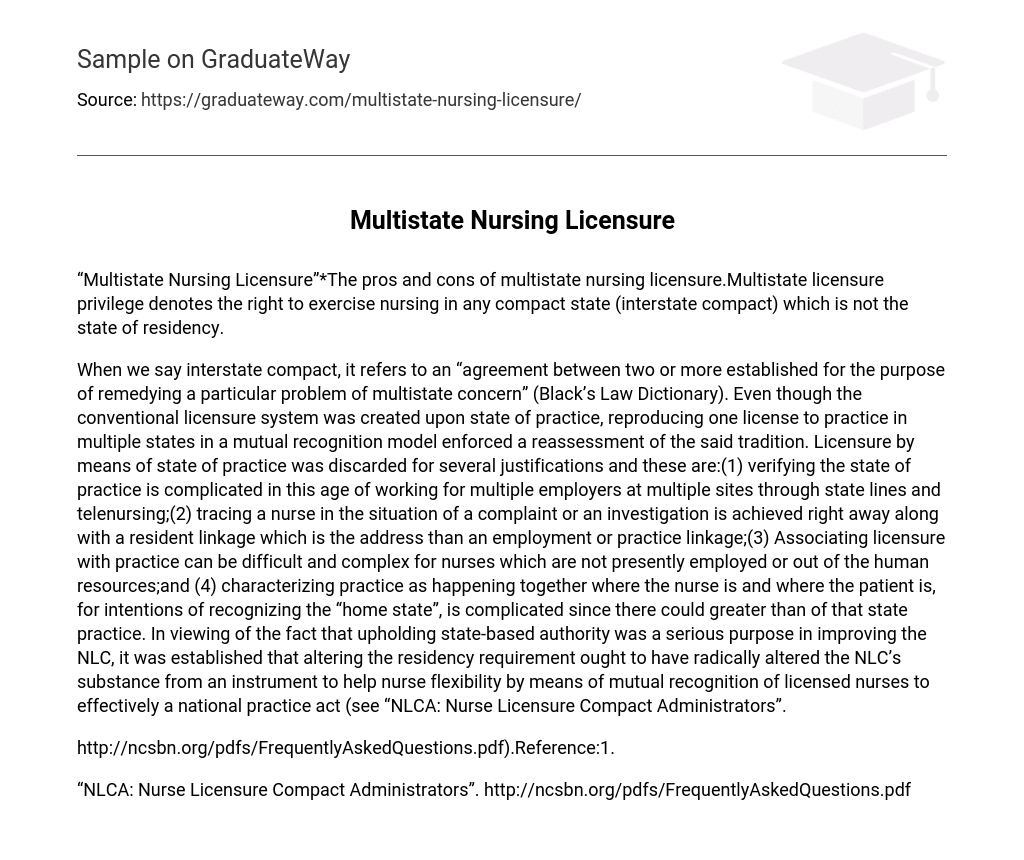The pros and cons of multistate nursing licensure.Multistate licensure privilege denotes the right to exercise nursing in any compact state (interstate compact) which is not the state of residency.
When we say interstate compact, it refers to an “agreement between two or more established for the purpose of remedying a particular problem of multistate concern” (Black’s Law Dictionary). Even though the conventional licensure system was created upon state of practice, reproducing one license to practice in multiple states in a mutual recognition model enforced a reassessment of the said tradition. Licensure by means of state of practice was discarded for several justifications and these are:
- verifying the state of practice is complicated in this age of working for multiple employers at multiple sites through state lines and telenursing;
- tracing a nurse in the situation of a complaint or an investigation is achieved right away along with a resident linkage which is the address than an employment or practice linkage;
- Associating licensure with practice can be difficult and complex for nurses which are not presently employed or out of the human resources;and
- characterizing practice as happening together where the nurse is and where the patient is, for intentions of recognizing the “home state”, is complicated since there could greater than of that state practice.
In viewing of the fact that upholding state-based authority was a serious purpose in improving the NLC, it was established that altering the residency requirement ought to have radically altered the NLC’s substance from an instrument to help nurse flexibility by means of mutual recognition of licensed nurses to effectively a national practice act (see “NLCA: Nurse Licensure Compact Administrators”.





